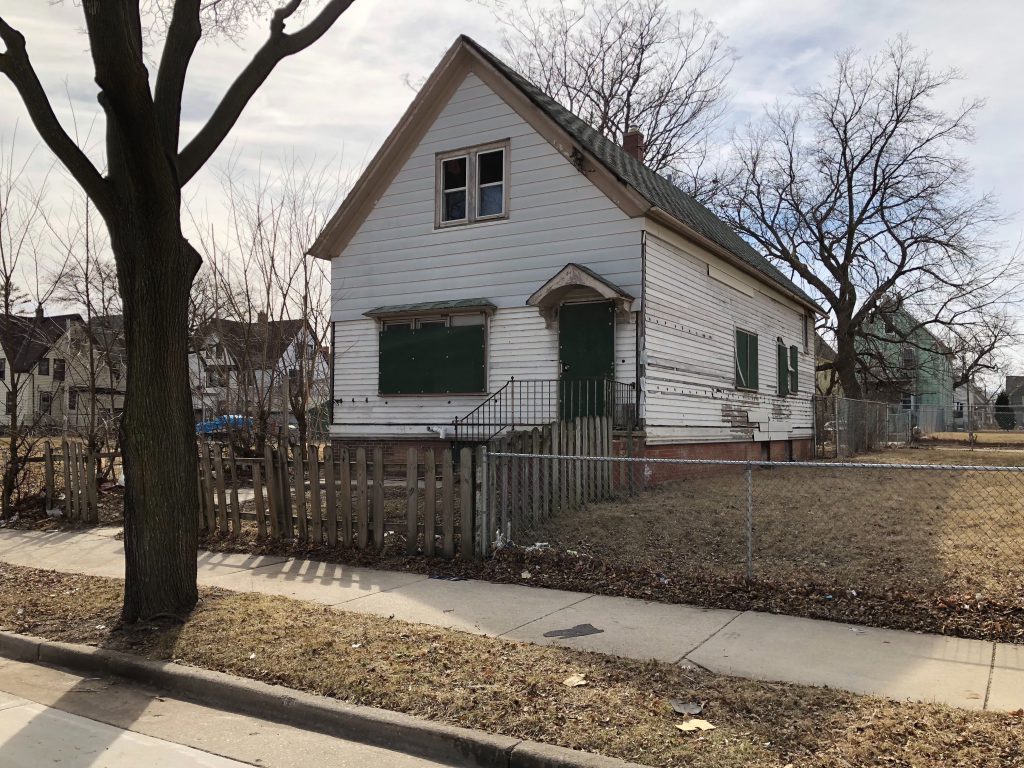Plan To Renovate Every City-Owned Home Gains Traction
Council now embraces Bauman proposal. Barrett's plan will include elements of it.
The Common Council killed the idea. Now they’re poised to give it life.
A repackaged version of Alderman Robert Bauman‘s proposal to rehabilitate all of the city-owned single-family and duplex houses using federal funds received a warm reception Tuesday morning.
But it ultimately held the matter pending the expected Friday release of a plan from Mayor Tom Barrett.
Bauman’s $150 million proposal comes in response to the $394 million the city is receiving from the $1.9 trillion American Rescue Plan Act. “I wanted to put a marker down. I wanted to put a stake in the ground,” said Bauman on how to spend the money.
The city is soliciting feedback on this through a variety of channels, including surveys. “It seems consistent throughout all of the feedback we have gotten that housing is a significant need that the city is facing,” said Bauman. “I propose to rehab the entire City of Milwaukee inventory of one and two-family housing.”
The proposal would allocate $105 million to the Department of City Development (DCD) to rehabilitate approximately 700 single-family houses and duplexes at an estimated cost of $150,000 per living unit. The remaining $45 million would go towards other city housing programs.
“I think that is reasonable given the experience we have had,” said Bauman of the per-unit costs. “There are some properties that might cost more than that. A lot might cost less, a lot less.” DCD would be tasked with finding the most effective way to do the work.
The city could then lease or sell the properties at below-market rates to create a supply of affordable housing.
“I want to thank Alderman Bauman for thinking big,” said Alderwoman Milele A. Coggs. She said she hears from her constituents regularly about problems with boarded-up homes. Her district has the second-highest total of city-owned homes.
But she said she was concerned that the scale of the investment could create gentrification. Coggs also said investing $150,000 in a house isn’t likely to yield a house worth $150,000.
“The valuation piece is really not in my mind a big issue,” said Bauman. He noted that the city would do the work without issuing debt and that new construction faces the same valuation problem in the same neighborhoods. Whatever money is generated would fund future rehabilitation efforts.
What does the administration think?
“I see we have the grim reapers in front of us at the table,” said Bauman. An earlier proposal of his to halt demolition until the federal funds were allocated received pushback from administration officials as well as his council colleagues.
But the administration supports his new plan, at least in concept.
“We are, on the basis of all activities, supportive,” said city grants administrator Steve Mahan. But he said he wanted the housing efforts to be vetted alongside all spending recommendations that the administration would bring forward. “I think you will be definitely pleased to see all these elements are included with leverage.”
Mahan said additional funding would come from a $20 million allocation of federal HOME funds, an affordable housing program. He said funding for housing could ultimately come from a “lasagna” of sources.
Budget director Dennis Yaccarino said the administration’s first spending recommendations would be presented Friday and could be voted on by the end of the month.
Under Bauman’s proposal, three other efforts would receive funding.
A total of $35 million would go to the Housing Trust Fund, to which developers apply to fill financing gaps in affordable housing projects. The program normally receives less than $1 million per year.
Existing housing programs would receive $9 million. “Generally they have been pretty effective given the limited resources that have been available,” said Bauman.
A handful of community members testified in support of a large housing investment. Retired Milwaukee Area Technical College professor Mike Rosen called for the Housing Trust Fund to receive $100 million, not $35 million.
Labor leader Peter Rickman backed the housing effort.
Minister Greg Lewis, head of Pastors United and Souls to the Polls, championed doing something big.
“We have the opportunity to do something that could really change lives here,” he said. “I think we need to be really careful about how we proceed here.”
The committee held the measure and is awaiting Barrett’s plan.
Political Contributions Tracker
Displaying political contributions between people mentioned in this story. Learn more.
- May 20, 2016 - Robert Bauman received $50 from Peter Rickman
- February 10, 2016 - Tom Barrett received $400 from Steve Mahan
Eyes on Milwaukee
-
Church, Cupid Partner On Affordable Housing
 Dec 4th, 2023 by Jeramey Jannene
Dec 4th, 2023 by Jeramey Jannene
-
Downtown Building Sells For Nearly Twice Its Assessed Value
 Nov 12th, 2023 by Jeramey Jannene
Nov 12th, 2023 by Jeramey Jannene
-
Immigration Office Moving To 310W Building
 Oct 25th, 2023 by Jeramey Jannene
Oct 25th, 2023 by Jeramey Jannene






















